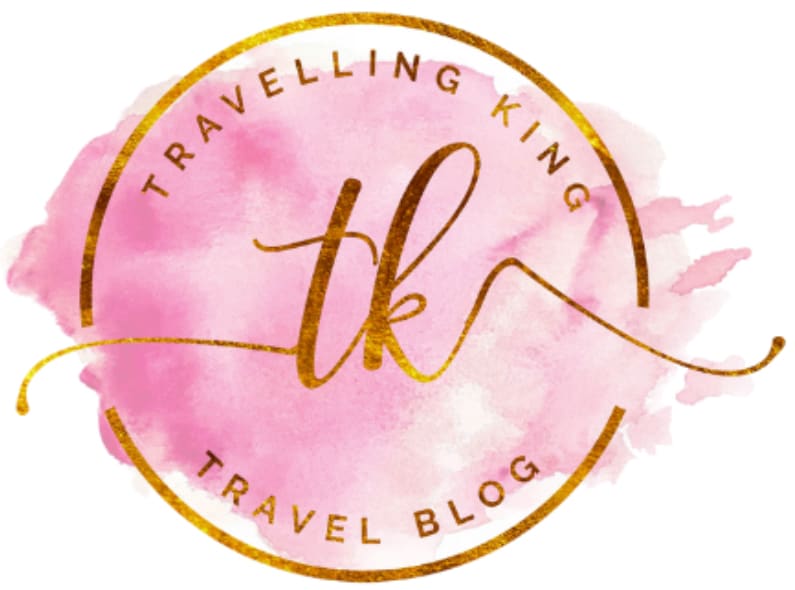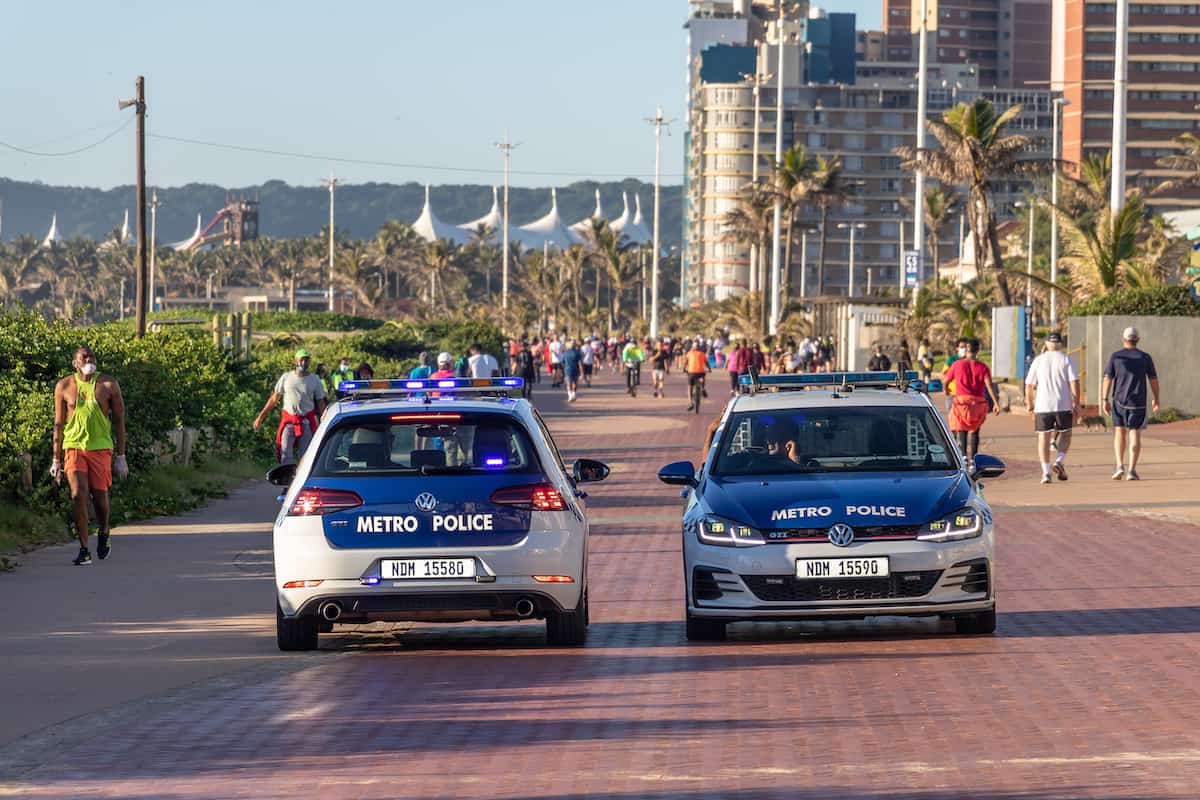Tipping in South Africa Guide | When and How Much to Tip in South Africa
Sunny South Africa, the rainbow nation. It is a thriving country with so much to offer and a diversity of cultures that sets it apart from its African neighbours.
Famous for its spectacular landscapes, you can’t dismiss the stark contrast between the arid deserts of the Kalahari and the lush Garden Route that winds around a wild coastline, opening the doors to varied topography.
It’s one of the main reasons why tourists every year make their way to visit and why understanding some of the standard practices and expectations, like tipping in South Africa, can go a long way.
It’s not only South Africa’s beautiful beaches and landscapes that draw people to its lands, but the famous Big Five and the countless other wild animals you will see on game drives and conservation reserves.

It’s the impeccable food and wine this country offers and the history behind everything you see. It is the welcoming, friendly people you will meet and the pride in their eyes for the land they love.
These people go out of their way to provide the best and most efficient experience, which is why the tipping culture is so influential.
The wages vary in South Africa; highly skilled professionals in fields like medicine, engineering, law, and information technology can earn substantially higher wages than the minimum. Salaries for skilled workers often reflect international market rates.
In contrast, workers in low-skilled jobs, such as agriculture or general labour, typically earn wages closer to or slightly above the minimum wage. South Africa’s economy has faced many challenges, including high unemployment rates, which can impact wage levels.
Due to the lack of jobs in the country, South Africans rely on tipping since it makes up a large portion of their salaries, making it a common practice for locals and tourists.
Below is a detailed guide, helping you break down the process of what each industry requires when it comes down to South Africa and tipping:
Plan your trip
Save on fees abroad with the Wise Card—use it at ATMs, restaurants, and for flights or hotels in over 150 countries. Manage 40+ currencies in real-time with the Wise app.
Need Help Planning?
- Cheap Flights: Find the best deals.
- Accommodation: From hostels to luxury stays.
- Car Rental: Affordable options worldwide.
- Sightseeing Tours: Explore without breaking the bank.
- Travel Adapter: One adapter for all your needs.
- Travel Insurance: Don’t risk it—stay covered.
This post includes affiliate links. Read my full disclosure and content policy.
Are you expected to tip in South Africa?
Tipping is a common and expected practice in South Africa for many service-related professions. It’s a way to show appreciation for good service. It is an essential part of the income for many workers in the service industry.
While tipping is customary, it’s generally not mandatory, and the exact amount can vary depending on the circumstances and your level of satisfaction.
Aim for a simple 10% of your final bill regarding tipping etiquette. Places like restaurants, bars and tour guides often expect some tips, which are only sometimes required in other industries.
In places like Cape Town and Johannesburg, you will notice it’s customary to tip car guards and petrol station attendants, especially those who have gone out of their way to help you.
This is common worldwide, but due to the lack of employment options, locals had to make a plan and assisting people in parking and leaving seemed a popular choice.
Always use your discretion, and if you need clarification on the appropriate tip amount, you can ask the service provider for guidance or recommendations.
Ultimately, tipping in South Africa is a way to acknowledge good service and support those in the service industry. Still, it should be based on your satisfaction and the quality of service received.
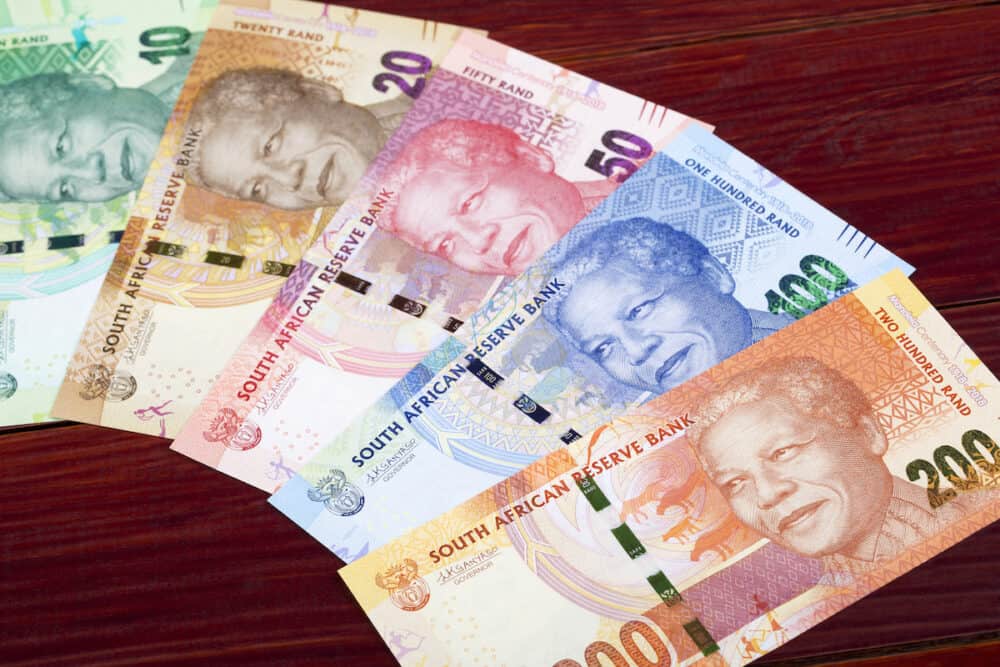
What’s the easiest way to give a tip in South Africa?
Cash people! It is always cash. Do not be surprised when the car guard at the Mall suddenly whips out a small Yoco machine and expects his R5 to help you escape a tight situation.
One of the best South African tips I can provide (since I am a South African myself) when it comes to gratuity is always having some loose change lying around your bag or back pocket for the moments you need a little extra.
Tipping at places like restaurants, hotels, bars, and large businesses usually prefer tips through card transactions by adding gratuity. Still, in South Africa, it’s best to have some backup cash for the lone-standing tip jars and change buckets.
While digital payments are becoming more common, especially in urban areas, cash remains the most straightforward and widely accepted method for tipping here in South Africa.
It’s good practice to have some flexibility and adapt to the payment methods available in the specific area or region you’re in anywhere you travel.
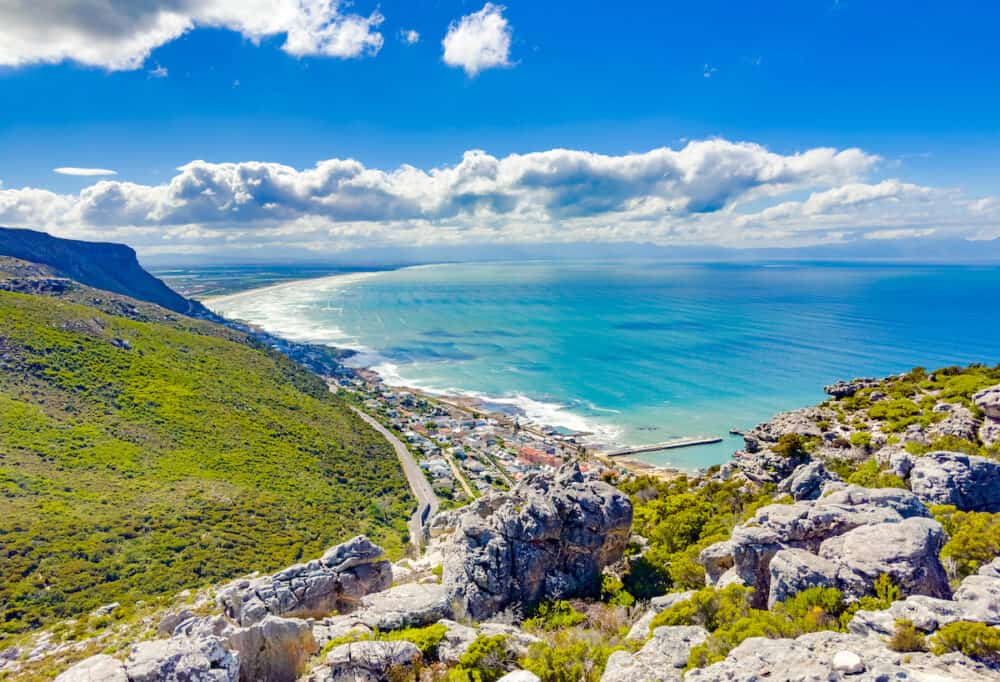
When and How Much to Tip in South Africa?
Knowing when and how much to tip wherever you travel is vital since this allows you to budget and be prepared.
In a country like South Africa, especially places like Johannesburg, Cape Town and Durban, it’s common to tip small change wherever you go to acknowledge the service and show appreciation. If you are unsure how much to tip, the minimal amount is 10%.
Knowing when to tip is pretty straightforward, so like most places, the tipping happens once the service is finished and you are satisfied as a customer.
It changes depending on the industry, but when paying a bill or settling a transaction, you can round up the total amount to the nearest convenient amount. For example, if your bill is 120 ZAR, you can pay 130 ZAR and let the service provider keep the change as a tip.
In cafes, bars, and restaurants, you may find tip jars near the counter or at the cashier, where you can drop your tip in the pot.
Tipping hotel staff in South Africa is similar to most hotels and tour operators, who generally provide envelopes for gratuities. You can place your tip in the envelope and hand it to the designated staff member.
When it comes to understanding how much to tip game rangers in South Africa and other industries you need to get used to, this guide will help you with all the details and assist in your budget preparations.
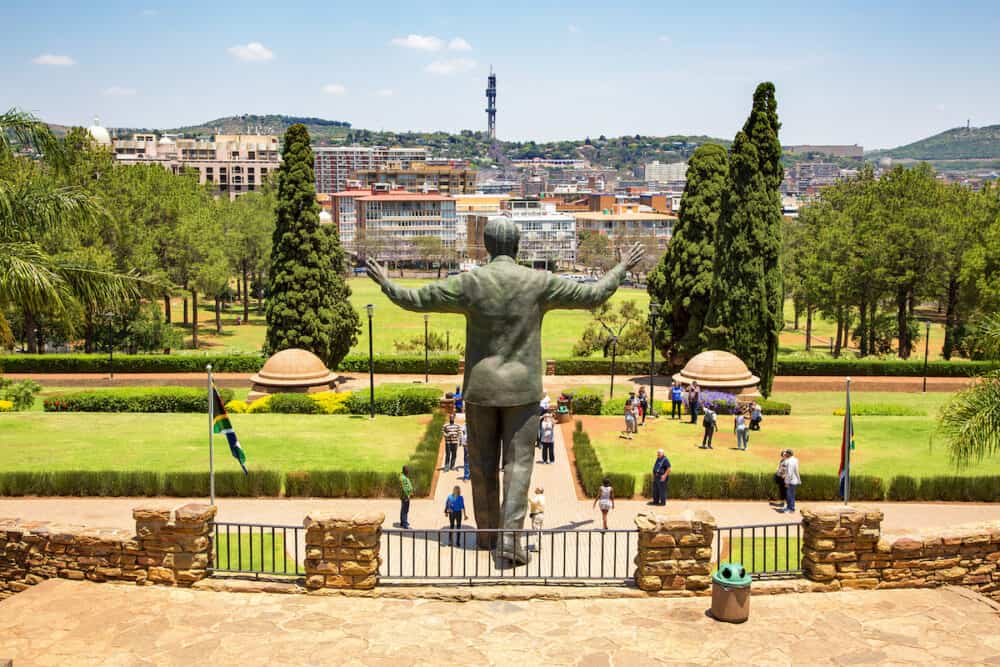
Can I tip in USD in South Africa?
Many places worldwide accept the dollar as an internationally recognised currency, but can you tip in US dollars in South Africa?
The local currency used in this country is the South African Rand (ZAR), and you will find few (if not any) places in the country accepting dollars, euros or pounds.
You will most likely get a small side eye, a confused look and an apologetic smile explaining they don’t take any currency but the Rand.
Suppose they choose to accept USD and other currencies. In that case, the establishment must convert it into ZAR, which can involve additional fees and potentially less favourable exchange rates, resulting in a smaller amount for the business. ZAR is the only legal tender in South Africa.
On the other hand, paying and tipping at private game reserves or safaris will most likely accept USD since they work with many international clients, and if you don’t have any of the local currency, head to the closest bank with an ATM.
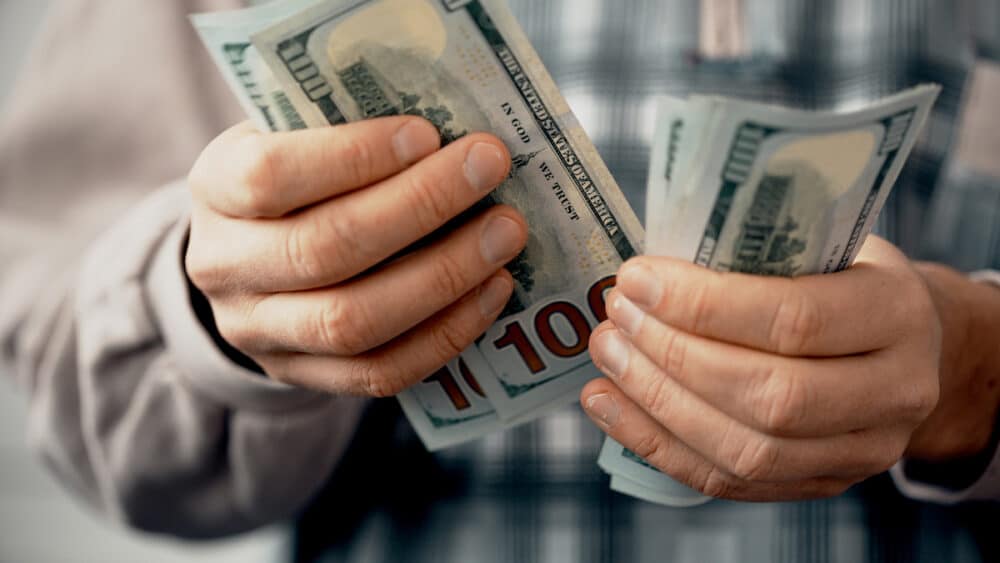
What Is A Reasonable Tip In South Africa
Tipping customs in South Africa are similar to many other countries, and what constitutes a reasonable tip can vary based on the level of service, the type of establishment, and personal preferences.
If you are still determining the amount, always aim for 10% or higher for any industry in South Africa.
Taxi & Uber Drivers
Regarding tipping in South Africa, metered taxis and Uber generally expect a tip of at least 10% of the final amount. If they have helped you with heavy luggage or assisted you, add more.
In South Africa, we get many minibus taxis that many locals use whom you do not tip, but it is unlikely you would use one of them.
It’s important to note that tipping practices can vary among individuals and regions. If you needhelp with how much to tip, you can always ask the driver for their preference or use your judgment based on the quality of service provided.
Taxi Drivers:
In South Africa, it’s common to round up the fare or add a small extra amount as a tip. A tip of around 10% to 15% of the food is generally considered reasonable if the service is satisfactory.
You can adjust the tip based on factors such as the quality of service, route taken, and overall experience.
Uber Drivers:
Tipping Uber drivers is not mandatory, but it’s a courteous gesture if you are happy with the service. Many Uber passengers choose to tip in the app after the ride, where Uber allows you to select a predefined tip amount or enter a custom tip.
Typically, a tip of 10% to 15% of the fare is a reasonable guideline, but you can adjust it as you see fit.
Tour Guides & Operators
A common question is, “How much do you tip safari guides in South Africa?”
Regarding it, tipping tour guides in South Africa is the same as you would tip hotel staff. However, some feel they deserve more due to their knowledge and interaction with others.
The appropriate tip can vary depending on the tour length, the service level, and your satisfaction.
Full-Day Tours:
A standard tip for full-day tours, such as safaris or guided excursions, is around 10% to 15% of the total tour cost per person.
Suppose the time was exceptional or involved a lot of personal attention. In that case, you should be tipping toward the higher end of this range.
Half-Day Tours:
A tip of around 5% to 10% is reasonable for shorter half-day tours. Again, adjust the tip based on the quality of the tour and your satisfaction.
Private Tours:
If you’ve booked a private tour or have a dedicated guide, you should tip the higher end of the range as the service is personalised.
Group Tours:
In group tours, you can collectively tip the guide and support staff. Many tours have a tipping kitty where participants contribute, and the total is divided among the guides, drivers, and other staff.
Safari Guides:
Safari guides in South Africa often rely on tips as a significant part of their income. Guidelines for tipping safari guides can be higher, typically ranging from $10 to $20 per person per day for their services.
Additional Support Staff:
In addition to your guide, you might encounter other support staff on tours, such as drivers, trackers, and camp staff. Consider tipping them individually or contributing to a collective tip.

Spa & Wellness Places:
Tipping at spa and wellness places in South Africa is similar to tipping at restaurants; it’s a way to show appreciation for the services provided, and a tip for a local can go a very long way.
While some spas may allow you to add the tip to your credit card payment, it’s often more convenient to tip in cash directly to the therapist or staff members who served you. Before tipping, checking the spa’s policies regarding gratuities is a good idea.
Some resorts may include a suggested tip amount on the bill, while others leave it to your discretion.
You can ask the staff for guidance if you need clarification on the appropriate tip amount. They are typically familiar with local tipping customs and can provide recommendations.
Spa and Massage Services:
For spa treatments, such as massages, facials, or body treatments, it’s customary to tip between 10% and 20% of the service cost, which you can adjust based on the quality of the treatment and your satisfaction.
Salon Services:
If you receive salon services, like haircuts, styling, or manicures/pedicures at a spa or wellness centre, a tip of around 10% to 15% of the service cost is typical.
Spa Packages:
For spa packages that include multiple services or treatments, you can calculate the tip based on the overall package cost or individually for each service received.
Hotel Spas:
If you’re using the spa facilities at a hotel, check if a service charge is automatically added to your bill. If you need help, you can tip the spa staff individually based on the above mentioned guidelines.
Additional Staff:
In some cases, additional staff might be involved, such as attendants or therapists. Consider tipping them separately or contributing to a collective tip pool if provided.
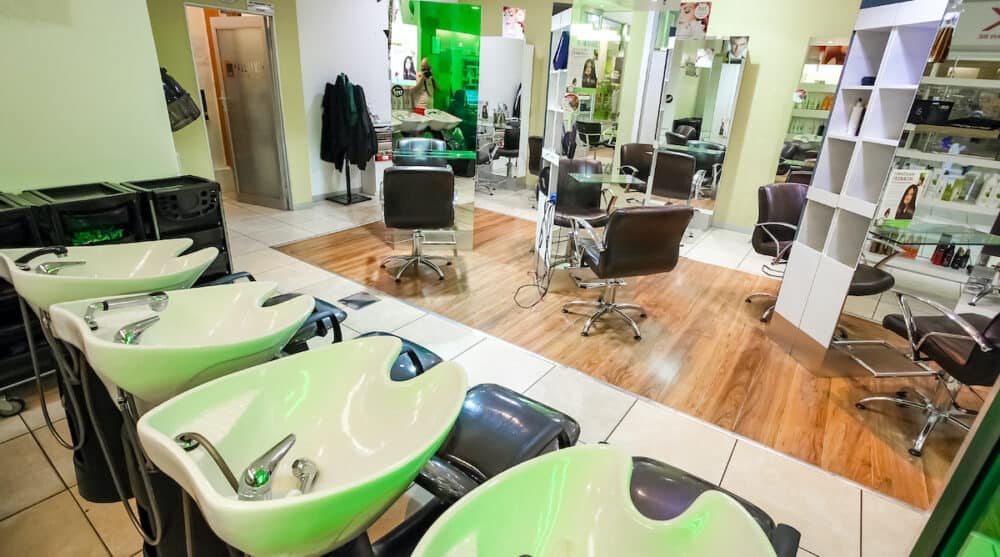
Hotel Staff
Each country has its different customs, and foreigners travelling to the Rainbow Nation have a common question that tends to make the rounds.
“How much do you tip housekeeping in South Africa?”
Tipping hotel staff in South Africa is a common practice and a great way to show appreciation for the services provided during your stay.
A lot goes on behind the closed door of your hotel room whilst it’s being cleaned, and you’d be shocked at what the cleaning crew and hotel staff have to go through with troublesome and problematic customers.
Tipping in South African hotels is highly appreciated since their tips make up a large portion of their monthly income, and any form of recognition for a service well done can impact someone’s day.
Porters:
Porters who assist with carrying your luggage to and from your room tend to receive a tip of around 10 to 20 South African Rand (ZAR) per bag. If you have a lot of luggage or if the porter goes above and beyond, you can tip on the higher end of the final amount.
Housekeeping:
It’s customary to leave a daily tip for housekeeping staff, especially if they clean your room daily. An amount of 20 to 50 ZAR per day is a reasonable guideline. You can leave the tip on the bedside table with a note to express your thanks.
Concierge:
If the concierge provides helpful recommendations, arranges reservations, or assists with other services, a tip of around 20 to 50 ZAR for each service they provide is appropriate.
Room Service:
If you order room service, adding a service charge to the bill is customary. However, if the service is excellent, you can leave an additional tip of around 10% of the total bill.
Restaurant Staff:
When dining at the hotel’s restaurant, the customary tipping range is 10% to 15% of the bill. Check your bill to see if a service charge has already been included.
Bartenders:
At the hotel bar, a tip of around 10% of the bill is standard, or you can round up the total to the nearest convenient amount.
Spa and Wellness Services:
If you use the spa or wellness facilities within the hotel, consider tipping the therapists or staff, as mentioned in the previous response, specific to spa and wellness places.
Valet Parking:
If you use valet parking services, a tip of around 20 to 50 ZAR when your car is returned to you is appreciated.
Front Desk:
Tipping the front desk staff is rare but still appreciated for exceptional service. You can provide a tip when they assist you with special requests or go out of their way to help.
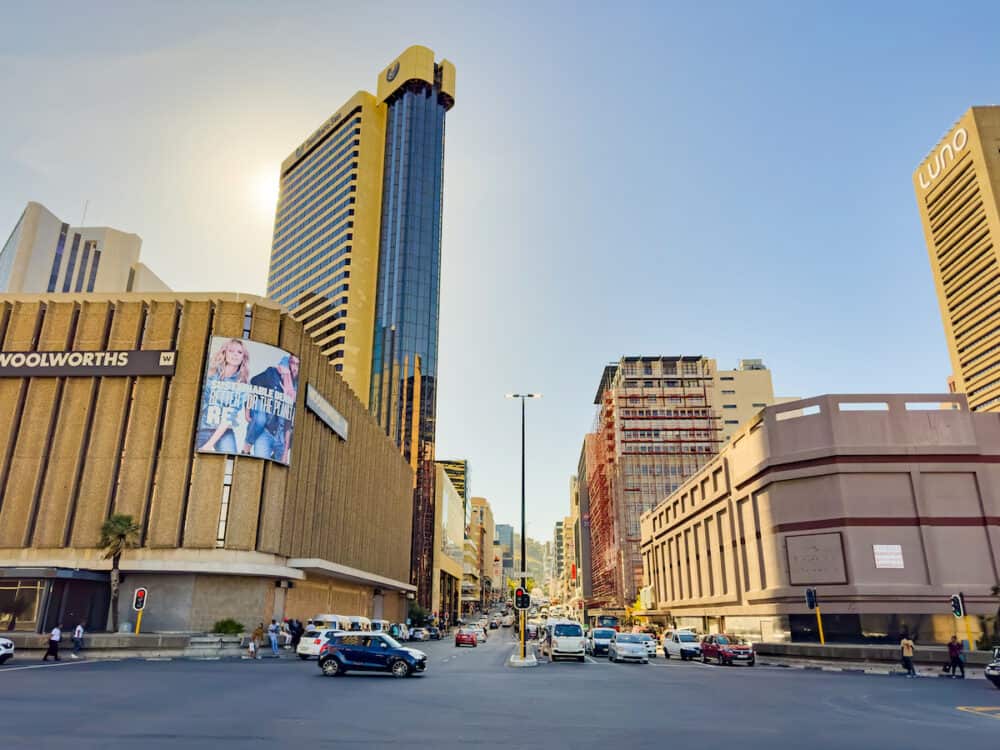
Cafes, Restaurants & Bars
Like many places worldwide, those who work at cafes, restaurants and bars rely heavily on their tips, and South Africa is no different.
In fact, from personal experience, people who work in these industries need their tips to make a workable living due to the low wages in South Africa, which is possibly why we are known for our excellent service.
Don’t be surprised to find yourself at a table with a very smiley waiter who has gone above and beyond to make you feel comfortable and present the best experience possible.
South Africa is known for delicious food and service at a very affordable price, and it literally takes $1 to assist and support a local here in SA.
Always check your bill to see if a service charge or gratuity has already been included. You can still leave an additional tip for exceptional service if it has.
Cafes:
In cafes, a tip of 10% to 15% of the total bill is customary if table service is provided. If you’re ordering at the counter and there’s no table service, tipping is less common but still appreciated, and you can leave some loose change in the tip jar.
Restaurants:
In restaurants, the general guideline is to tip between 10% to 15% of the total bill. Many restaurants in South Africa include a service charge or gratuity (often listed as a “service fee” on the bill), so check your tab before adding an additional tip. A 10% to 15% tip for good service is standard if service is not included.
Fine Dining:
In upscale or fine dining restaurants, where the service and experience are typically more refined, tipping on the higher end of the range, such as 15% to 20%, is customary.
Buffet Restaurants:
In buffet-style restaurants where you may serve yourself but the waitstaff still provides some services (e.g., clearing plates, refilling drinks), a tip of around 10% is appropriate.
Bars:
When ordering drinks at bars, it’s customary to tip the bartender between 10% and 15% of the total bill, especially if they provide table service or create specialty cocktails. For more straightforward orders like a single drink, rounding up the bill or leaving a small amount is common.
Splitting the Bill:
Consider tipping based on your portion if you’re in a group, and the bill is split. Each person can calculate their tip individually.
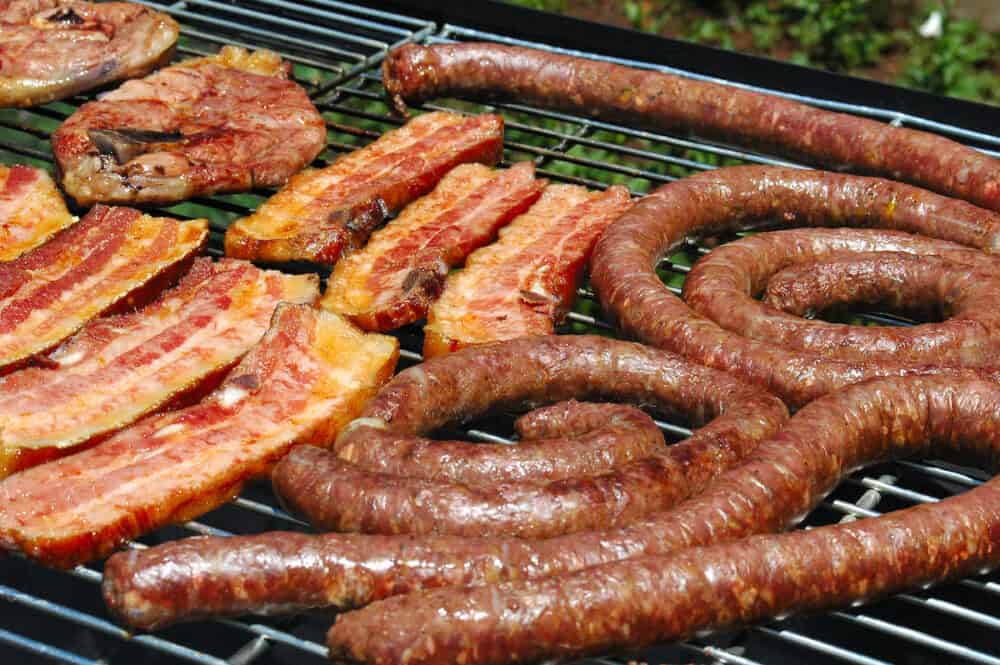
Food Delivery
I have always been one to tip food delivery drivers, in hand, just because I know how intense it can get and what they have to go through to get your food delivered, still warm.
From long distances to ridiculous weather situations, they get through it. Tipping food delivery drivers in South Africa is customary and even expected.
The weather here in South Africa can do multiple flips in a day, and even during heavy rainfalls and crazy winds, the delivery drivers are there fighting through it to get to their destination.
Tipping will be highly appreciated; like other industries, it makes up most of their monthly salaries.
Delivery Fee:
First, check if there is a delivery fee included in your order. Sometimes, the delivery fee may cover part of the driver’s compensation. If a delivery fee is included, you can still add a tip on top of it.
Percentage of the Bill:
A standard guideline for tipping food delivery drivers is to offer a tip of around 10% to 15% of the total bill. This percentage can vary based on factors like the distance of the delivery, the complexity of the order, and your level of satisfaction with the service.
Flat Amount:
If you prefer, you can also opt for a flat tip amount. Depending on your budget and the size of your order, a typical flat tip could be around 20 to 50 South African Rand (ZAR).
Consider Distance and Weather:
If the delivery driver had to travel a significant distance or weather conditions were unfavourable (e.g., heavy rain or extreme heat), you may tip a bit more to compensate for their effort.
Cash or In-App Tipping:
Many food delivery services allow you to add a tip in the app or when paying online. Still, you always have the opportunity to provide cash.
Prompt and Courteous Service:
If the delivery was prompt, the order was correct, and the driver was courteous, it’s a good reason to provide a generous tip.
Feedback:
If you have any special requests or the driver went above and beyond to ensure your satisfaction, consider acknowledging their efforts with a slightly higher tip.
Check the Restaurant’s Policy:
Some restaurants may have a policy on tipping delivery drivers, so be sure to inquire if there are any specific guidelines or recommendations.
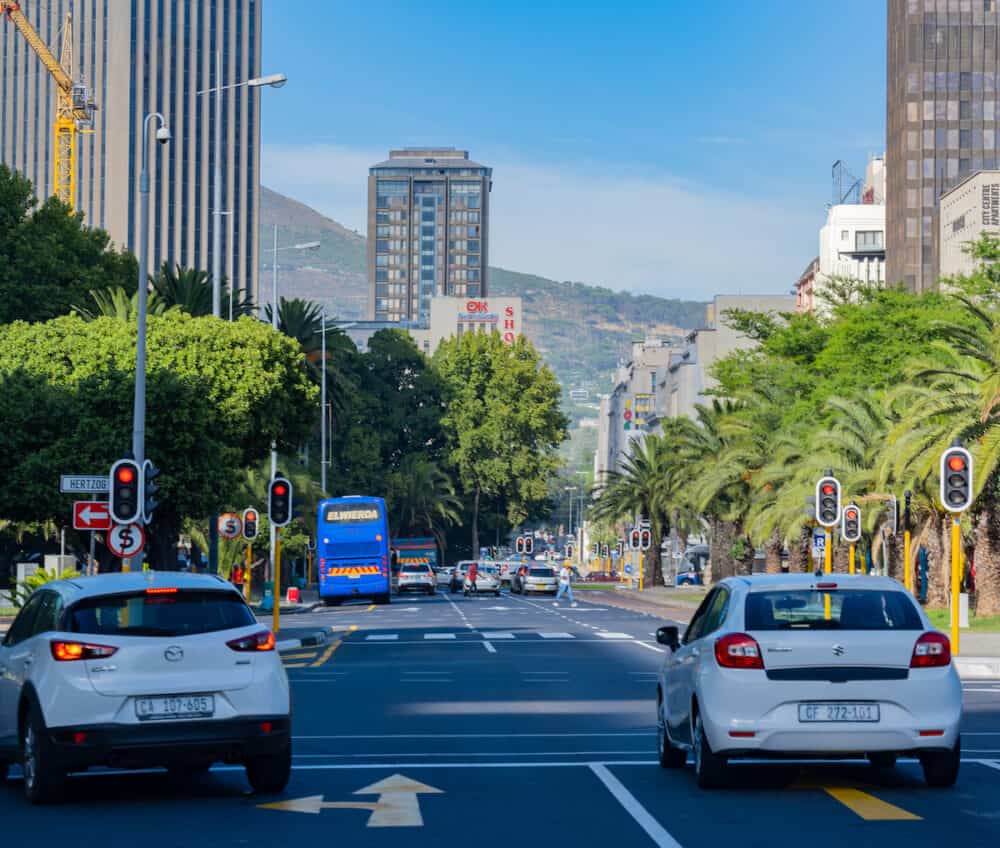
Street Vendors & Markets
Tipping street vendors or market sellers is a beautiful addition to whatever you have decided to buy. Still, honestly, people need to do it in South Africa.
Unless they offered a specific service and not just a product, then tipping is optional. Still, otherwise, it would be like tipping an ordinary shop attendant for their excellent skills in cashing up your products.
You may still find a tip jar hanging at different shops, but that’s more there for the gracious person who pops a couple of loose change inside.
While tipping isn’t the norm at street markets and with street vendors in South Africa, your approach should be flexible and considerate. It’s more about fair and respectful bargaining and maintaining a positive and friendly interaction with the vendors.
Ultimately, the decision to tip or offer additional payment should be up to you and the specific circumstances of the transaction.
Bargaining:
When shopping at street markets or dealing with street vendors, it’s more common to negotiate the price of the goods rather than leave a tip. Bargaining is an integral part of the buying process in many street markets.
Round-Up:
Suppose you want to show appreciation for the vendor’s service or are satisfied with your purchase. In that case, you can round up the final price to the nearest convenient amount. For example, if an item costs 40 ZAR, you can pay 50 ZAR instead.
Small Change:
You can also let the vendor keep the small change as a way of tipping, especially if the amount is negligible to you but can make a difference to them.
Exceptional Service:
If a vendor provides exceptional service, goes out of their way to help you, or offers additional assistance, consider giving a small tip or paying more for the item.
Local Customs:
Be mindful of local customs and norms. Sometimes, vendors may not expect or be accustomed to receiving tips, so it’s essential to respect the local practices and be sure they are happy with them.
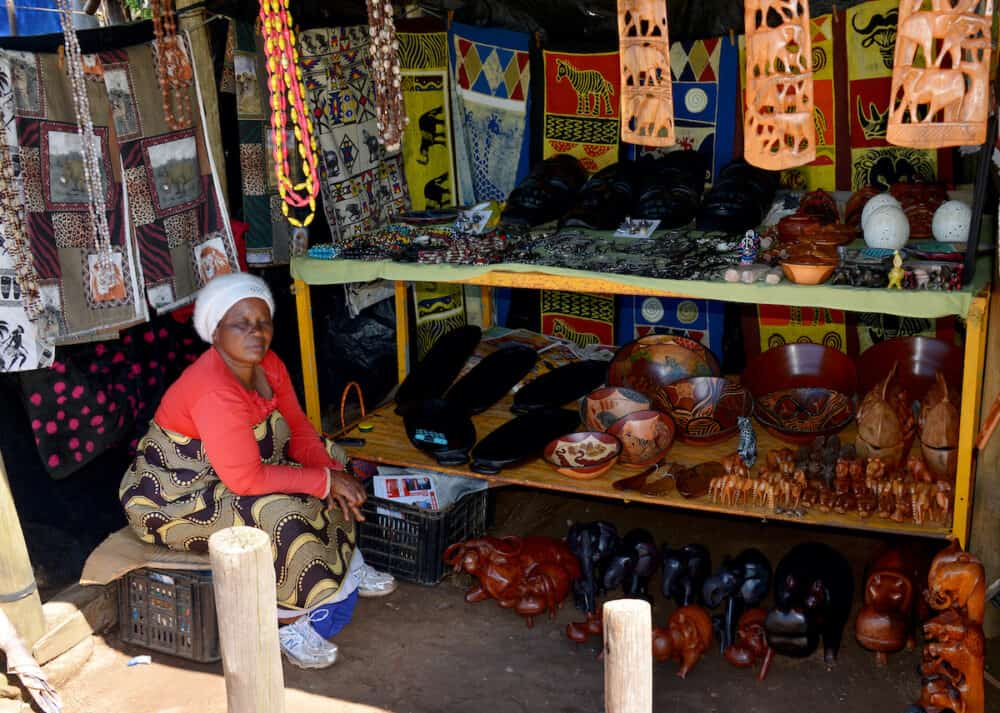
Airport & Hotel Porters
Arriving at an airport with all your luggage can be a whole situation. If it wasn’t for the helpful airport porter assisting me and my mess, it would have taken me much longer to make my way to the exit and find a taxi.
Tipping depends entirely on you, your preferences and the level of service provided, but tipping airport and hotel porters is a common practice and an appreciative gesture from you.
Again, these people do not receive a high salary, meaning tips are essential to their daily earnings. It also opens the doors to slightly pushy porters. Still, it is entirely up to you whether you want the help; all it takes is to decline respectfully.
Airport Porters:
Airport porters assist with carrying your luggage at the airport. A 10 to 20 South African Rand (ZAR) tip per bag is standard. If you have more cumbersome luggage, consider tipping on the higher end of this range.
Hotel Porters:
Hotel porters help with carrying your luggage to and from your room. A tip of approximately 10 to 20 ZAR per bag is customary. Consider a slightly higher tip if staying at a higher-end or luxury hotel.
Cash in Local Currency:
Tipping cash, preferably in the local currency (ZAR), is advisable. Ensure you have some small denominations on hand for tipping purposes.
Quality of Service:
Consider the quality of service when determining the tip amount. A higher tip may be appropriate if the porter is friendly, helpful, and provides efficient service.
Large or Heavy Items:
Suppose you have large, complex or heavy items that require extra effort from the porter, such as oversized luggage or special equipment. In that case, providing a more substantial tip to compensate for the additional work is courteous.
Multiple Porters:
Suppose multiple porters assist you during your stay (e.g., at the airport and the hotel). In that case, you can tip each one separately based on their service.
Gratitude:
When tipping, expressing your gratitude verbally is polite by saying “thank you” to the porter for their assistance.
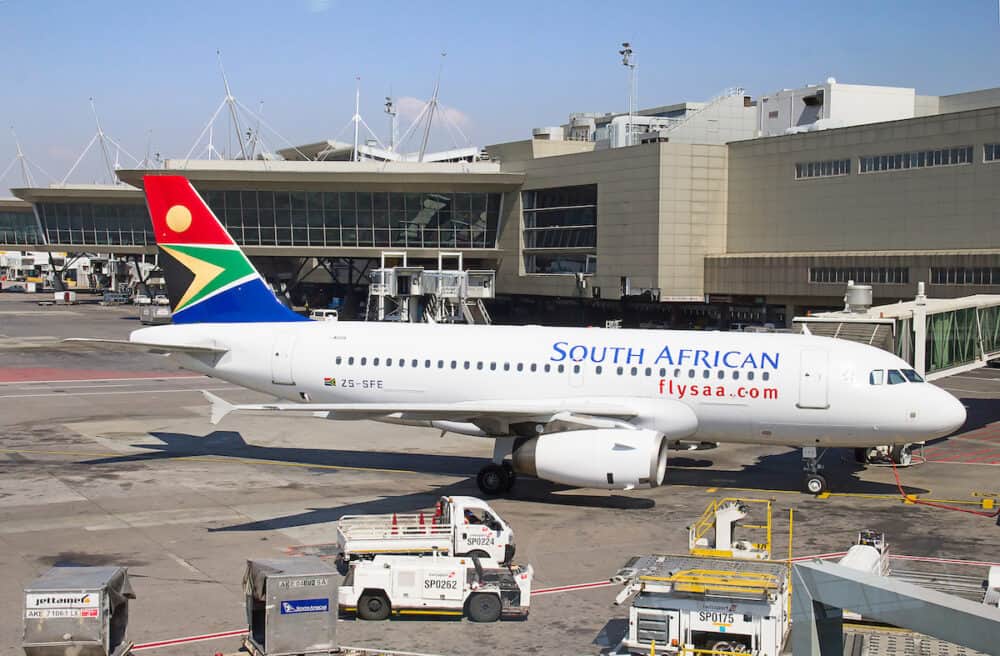
Car Guards
Car guards are worth mentioning in this article. It is suitable for travellers to be aware that in South Africa, we have many car guards everywhere in hopes of helping cars find parking, reverse out safely and watch over them in exchange for a tip for their services.
It became a growing factor when employment and homelessness became extreme a couple of years back.
Car guards in South Africa provide informal security services by watching over parked cars in public areas, such as shopping malls, markets, and entertainment venues.
While they don’t have an official salary and rely on tips from vehicle owners, there are no strict guidelines for how much to tip car guards. Tipping amounts can vary widely based on individual circumstances and location.
Be aware that certain car guards are not hired by official businesses, and you can work that out by the coloured government jacket they wear. Usually, it would be a luminescent green, yellow or orange, representing an official government worker.
Supporting ‘freelancing’ car guards is not recommended since they are not regulated, and some may work within gangs.
Official Government Car Guards:
These car guards wear the official government vest or jacket and only require a couple of coins in exchange for their services. It can range from a simple R2 to R10 and more for the level of service they provide. If you’re parking for an extended period, you might give a larger tip upon returning.
General Car Guards:
Many of us wish to support and help whoever we can when we can, but certain situations are up to your discretion. Reports have shown that giving money to unregulated carguards can increase drug and crime activity in different areas.
Still, if they did provide an excellent service to you, then there is no reason not to. Many people are wary because of these guards’ pushiness and high expectations.
Side note: If I found an unofficial car guard in the parking, before heading to my car, I would ask him first which car was mine, and that tended to help me decide whether they deserved any money from me.
Payments:
As mentioned before, car guards typically prefer small cash or bills. Still, you will be surprised that many of them, especially in Cape Town, now carry small card machines for their services.
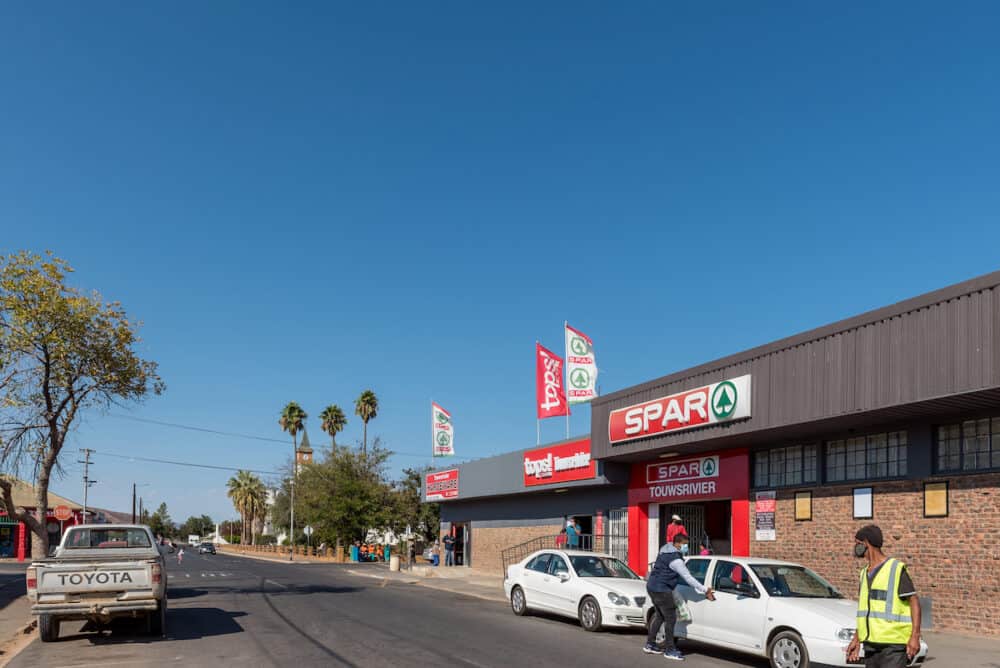
Conclusion
Tipping is an excellent way of showing your appreciation. In places like South Africa, the locals and residents heavily rely on gratuity as a primary form of income, which is why it is such a common practice.
People from places like Europe and America will likely find South Africa very affordable and tipping a couple of dollars, pounds or euros here. There can go an exceptionally long way for a local in South Africa and barely make a dent in your pocket or travel budget.
The question is, “to tip, or not to tip?”
Read more:

